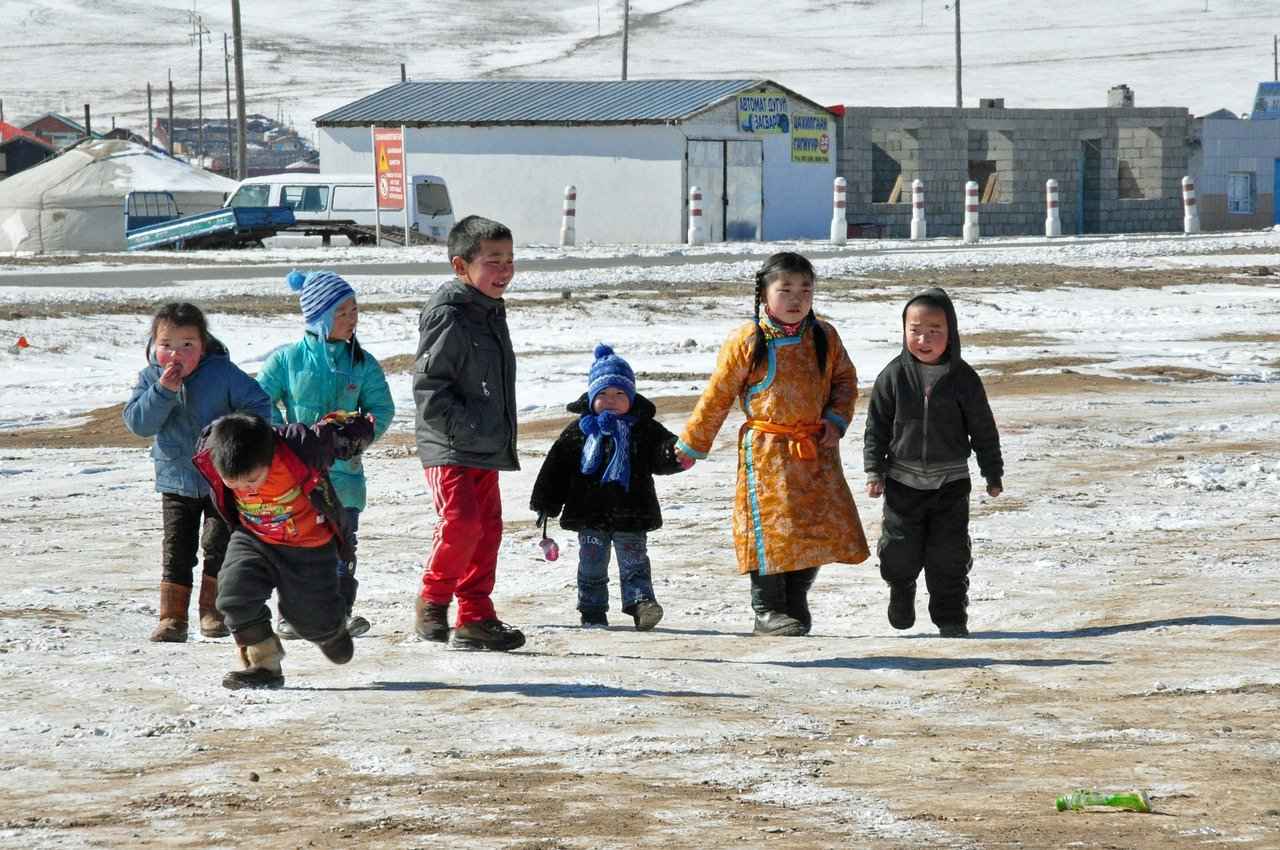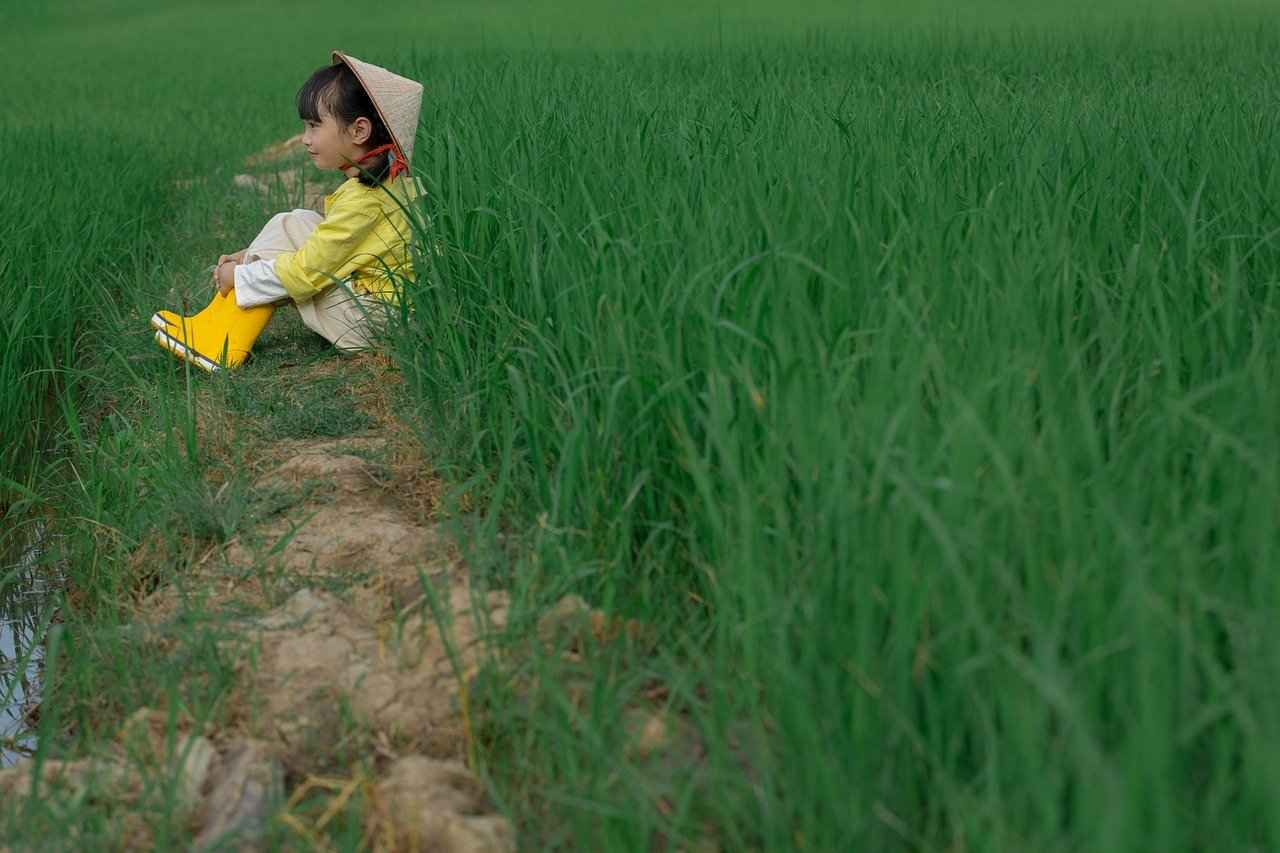As we look ahead to 2025, the excitement builds for an array of new movies designed to captivate young audiences. This year promises a fantastic lineup that includes animated features, live-action adaptations, and films that celebrate diversity and inclusivity. Parents can expect a delightful mix of entertainment, education, and heartwarming stories that resonate with children of all ages.
1. Exciting Animated Features
- Animation remains a favorite among children, with stunning visuals and engaging narratives.
- Expect to see new characters and adventures that will spark imagination.
2. Live-Action Adaptations
- Classic tales are being reimagined for the big screen, bringing beloved stories to life.
- From timeless classics to modern bestsellers, these adaptations will cater to a wide audience.
3. Themed Movies for Special Occasions
- Holiday specials will bring festive cheer to families during the 2025 season.
- Seasonal releases will showcase themes that celebrate the beauty of change.
4. Diverse Representation in Children’s Cinema
- Films highlighting various cultures and experiences will promote inclusivity.
- Gender representation will empower young viewers through strong, relatable characters.
5. Anticipated Sequels and Franchises
- Fans can look forward to returning characters and expanded universes in popular franchises.
- New stories will breathe fresh life into beloved series.
6. Innovative Storytelling Techniques
- Filmmakers are exploring interactive elements to enhance viewer engagement.
- Virtual reality experiences are on the rise, providing immersive adventures for kids.
7. Family-Friendly Comedies
- Expect laughter with comedies that cater to both kids and parents.
- Witty dialogue and slapstick humor will keep audiences entertained.
8. Educational Themes in Children’s Films
- Movies focusing on environmental awareness will teach valuable lessons.
- Social skills and values will be addressed, helping children learn important life lessons.
9. Collaborations with Popular Brands
- Merchandise tie-ins will enhance the excitement surrounding upcoming films.
- Cross-promotional campaigns will create buzz and anticipation.
10. Upcoming Film Festivals for Kids
- Film festivals dedicated to children’s cinema will showcase new talent and diverse stories.
- Both international and local events will highlight the best in children’s filmmaking.
11. Parental Guidance and Ratings
- Understanding film ratings will help parents make informed choices for their children.
- Content warnings will prepare families for sensitive topics addressed in films.
12. Conclusion: The Future of Children’s Cinema
The future of children’s cinema is bright, with a diverse array of films set to inspire, entertain, and educate young viewers. As 2025 approaches, families can look forward to a rich selection of movies that celebrate creativity and imagination.

1. Exciting Animated Features
Exciting Animated Features
Animation has an extraordinary ability to transport young audiences into vibrant worlds filled with imagination and adventure. As we look ahead to 2025, a slate of highly anticipated animated films is set to captivate children and families alike. These films promise not only to feature beloved characters but also to introduce innovative storytelling techniques that will enhance the viewing experience.
Among the most exciting releases are sequels to popular franchises, which will bring back familiar faces and narratives that have already won the hearts of many. For instance, fans can expect a new installment from the beloved series that follows a group of friends on their fantastical journeys. Additionally, new characters will be introduced, expanding the universe and offering fresh perspectives.
Furthermore, the animation industry is embracing diversity and representation in storytelling. Upcoming films will feature characters from various cultural backgrounds, allowing children to see themselves reflected on screen. This shift not only enriches the narratives but also fosters a sense of belonging among young viewers.
In terms of storytelling techniques, filmmakers are increasingly experimenting with interactive elements that engage the audience beyond passive viewing. Some films may include segments where children can make choices that affect the storyline, creating a more immersive experience. Additionally, advancements in technology will enable the incorporation of virtual reality experiences, allowing kids to step into the animated worlds they adore.
As we anticipate these exciting animated features, parents can look forward to a year filled with laughter, adventure, and valuable lessons. The films of 2025 are set to inspire young minds while providing wholesome entertainment for the entire family.

2. Live-Action Adaptations
Live-action films based on popular children’s stories are gaining traction. As we look ahead to 2025, the excitement is palpable as classic tales are set to be reimagined for the big screen. This trend not only revitalizes beloved narratives but also introduces them to a new generation of young viewers.
Over the years, many cherished children’s stories have transitioned from page to screen, and 2025 promises to be no different. From timeless classics to modern bestsellers, a variety of adaptations are in the works, each aiming to capture the hearts and imaginations of children and families alike.
| Story Title | Original Author | Release Date |
|---|---|---|
| The Secret Garden | Frances Hodgson Burnett | March 2025 |
| Peter Pan | J.M. Barrie | June 2025 |
| Matilda | Roald Dahl | November 2025 |
Among the adaptations, timeless classics like The Secret Garden and Peter Pan will be revisited with modern storytelling techniques, aiming to resonate with both nostalgic adults and curious children. Meanwhile, newer bestsellers, such as Matilda, are also making their way to theaters, bringing fresh perspectives to stories that have already captured the hearts of many.
These live-action adaptations promise to blend stunning visuals with engaging narratives, ensuring that children not only enjoy the stories but also learn valuable lessons along the way. As families prepare for these exciting releases, they can look forward to a year filled with adventure, imagination, and the magic of storytelling.
In conclusion, the trend of reimagining classic children’s stories in live-action format is set to flourish in 2025. With a diverse lineup of adaptations, families can expect to see their favorite tales brought to life in new and exciting ways.
2.1. Iconic Book Adaptations
Iconic Book Adaptations are on the rise, captivating audiences of all ages with their enchanting stories and memorable characters. As we look forward to 2025, many beloved children’s books are being transformed into live-action films, bringing cherished tales to life in a new and exciting way. This article delves into some of the most anticipated adaptations, exploring their themes, characters, and what parents can expect for their children.
Adaptations of classic literature have always held a special place in the hearts of families. In 2025, audiences can expect to see timeless stories reimagined for a new generation. These adaptations often breathe fresh life into narratives that have been loved for decades, allowing both children and adults to experience the magic of these tales anew. For instance, adaptations of titles like The Secret Garden and Charlotte’s Web promise to resonate with both nostalgic adults and curious young viewers.
In addition to classic tales, the film industry is also focusing on newer bestsellers. Popular contemporary children’s books are making their way to the big screen, introducing exciting stories that reflect modern themes and diverse characters. Titles such as The One and Only Ivan and Dog Man are expected to capture the imaginations of young audiences, offering relatable characters and engaging plots that encourage creativity and empathy.
As these adaptations unfold, parents can look forward to films that not only entertain but also impart valuable lessons. The blend of adventure, humor, and heartwarming moments will ensure that children leave the theater inspired and enriched. With the rise of live-action adaptations, families can anticipate a delightful cinematic experience that fosters a love for reading and storytelling.
| Title | Type | Expected Release Date |
|---|---|---|
| The Secret Garden | Live-Action | Spring 2025 |
| Charlotte’s Web | Live-Action | Summer 2025 |
| The One and Only Ivan | Live-Action | Fall 2025 |
| Dog Man | Live-Action | Winter 2025 |
In conclusion, the adaptations of iconic children’s books into live-action films in 2025 are set to be a thrilling journey for young audiences. With a mix of timeless classics and contemporary favorites, these films will inspire creativity, imagination, and a love for storytelling in children everywhere.
2.1.1. Timeless Classics
Timeless classics have a unique ability to resonate across generations. As we look into the future, many of these beloved stories are being revisited with fresh perspectives that aim to captivate both new audiences and those who hold fond memories of the originals. Adaptations of these classics promise to blend nostalgia with innovative storytelling, creating a bridge between the past and the present.
In 2025, several adaptations are set to hit theaters, each offering a unique take on the stories we know and love. These films will not only revive iconic characters but also introduce them to a new generation, ensuring that their adventures continue to inspire and entertain.
- Modern Visual Effects: With advancements in technology, filmmakers can bring fantastical elements to life like never before. Expect vibrant visuals that enhance the storytelling experience.
- Diverse Casts: Many adaptations are focusing on casting actors from a variety of backgrounds, enriching the narrative and making it more relatable to today’s audiences.
- Updated Themes: While the core story remains intact, many adaptations will explore contemporary themes such as friendship, identity, and courage, making them relevant to current societal issues.
Additionally, these adaptations are designed to spark conversations among families. Parents can share their love for these stories with their children, creating a shared experience that fosters connection and understanding. The blend of nostalgia for parents and fresh excitement for kids truly makes these adaptations a family affair.
In conclusion, the adaptations of timeless classics in 2025 promise to be a thrilling experience for all. With a focus on inclusivity, modern storytelling techniques, and vibrant visuals, these films are set to resonate with both new and nostalgic audiences alike.
2.1.2. Newer Bestsellers
New Movies for Kids in 2025: A Sneak Peek of Upcoming Releases
As we look forward to 2025, the world of children’s cinema is set to expand with a variety of exciting films that promise to entertain and inspire young audiences. Among these, newer bestsellers are making their way to theaters, bringing fresh stories and characters that will undoubtedly capture the imaginations of children everywhere.
1. Anticipated Adaptations of Popular Books
Many recent bestsellers are being transformed into films, allowing children to see their favorite stories come to life. These adaptations not only introduce young viewers to captivating narratives but also encourage a love for reading. Here are some of the most anticipated titles:
- The Adventures of Captain Superlative – This empowering story of a young girl who becomes a superhero will inspire kids to embrace their own strengths.
- The Wild Robot – Based on the bestselling novel, this film explores themes of nature and technology, showcasing the adventures of a robot stranded on a remote island.
- Wonderscape – A thrilling tale that combines fantasy and adventure, where children navigate through different worlds to save their friend.
2. Themes of Friendship and Teamwork
These newer adaptations often center around themes of friendship and teamwork, essential values for young audiences. As children watch these characters navigate challenges together, they learn important lessons about collaboration and support.
3. Visual and Narrative Innovation
Filmmakers are also utilizing innovative animation techniques and storytelling methods to engage young viewers. Expect vibrant visuals and imaginative worlds that enhance the cinematic experience. This approach not only captivates children but also stimulates their creativity.
Conclusion
The upcoming year promises a rich selection of films based on newer bestsellers that will resonate with children. As these stories unfold on the big screen, they will not only entertain but also impart valuable lessons, making 2025 a remarkable year for children’s cinema.
2.2. Family-Friendly Adventures
Family-friendly adventures are a cornerstone of live-action films, offering thrilling experiences that resonate with children and families alike. As we look ahead to 2025, the movie landscape is brimming with exciting escapades designed to captivate young audiences. From enchanted forests to daring quests, these films promise to deliver unforgettable moments that both entertain and inspire.
In 2025, families can expect a rich variety of adventures that not only entertain but also teach valuable lessons about friendship, courage, and teamwork. Live-action films are set to explore diverse themes, with stories that encourage kids to dream big and embark on their own adventures. Here are some highlights to look forward to:
- Epic Quests: Many films will feature young heroes embarking on epic quests, facing challenges that will test their bravery and resolve.
- Magical Worlds: Audiences will be transported to magical realms filled with fantastical creatures and breathtaking landscapes, sparking imagination and wonder.
- Dynamic Duos: Expect to see charming pairs of characters who navigate through obstacles, showcasing the importance of friendship and collaboration.
Moreover, these films will often incorporate elements of humor and heartwarming moments, ensuring that both kids and parents find joy in the storytelling. The blend of adventure and comedy will create an engaging experience that appeals to a wide audience.
As families prepare for movie nights in 2025, they can look forward to not just entertainment, but also opportunities for discussion about the themes presented in these films. Family-friendly adventures will continue to serve as a bridge for meaningful conversations, making them an essential part of children’s cinema.
With a focus on creativity and imagination, the upcoming films are set to inspire a new generation of adventurers. As we embrace these exciting stories, families can anticipate a year filled with laughter, excitement, and unforgettable memories.

3. Themed Movies for Special Occasions
Themed Movies for Special Occasions are a delightful way to celebrate holidays and events through the magic of cinema. As we look forward to 2025, there are numerous exciting releases planned that will coincide with various special occasions, bringing families together for memorable viewing experiences.
In 2025, audiences can expect a rich selection of films designed to capture the spirit of different holidays. Here’s a closer look at some of the anticipated themed releases:
| Occasion | Movie Title | Synopsis |
|---|---|---|
| Valentine’s Day | Love’s Adventure | A charming animated tale about two young hearts overcoming obstacles to find love. |
| Halloween | Spooky Tales | A collection of fun and light-hearted ghost stories perfect for kids to enjoy. |
| Thanksgiving | Feast of Friends | A heartwarming story about friendship and gratitude set during the Thanksgiving festivities. |
| Christmas | Santa’s Secret Helpers | A magical adventure where kids help Santa save Christmas from a mischievous elf. |
Additionally, seasonal releases will celebrate the changing of the seasons. Films highlighting spring, summer, autumn, and winter themes will not only entertain but also teach young viewers about nature and the beauty of each season. For instance:
- Spring Awakening: A story about new beginnings and the joy of nature.
- Summer Splash: A fun-filled adventure at the beach with friends.
- Autumn Harvest: A heartwarming tale about family traditions during harvest time.
- Winter Wonderland: A magical journey through a snowy landscape filled with surprises.
These films not only provide entertainment but also create opportunities for families to bond over shared experiences during special occasions. As we approach 2025, the excitement for these themed releases continues to grow, promising an array of films that will resonate with audiences of all ages.
3.1. Holiday Specials
Holiday specials have a unique way of bringing families together, creating cherished memories during the festive season. As we look forward to the 2025 holiday season, a delightful array of holiday-themed movies is set to captivate audiences of all ages. These films not only entertain but also evoke the spirit of joy and togetherness that the holidays embody.
Families can expect a variety of genres, from animated adventures to heartwarming live-action stories. Here’s a glimpse of what to anticipate:
| Movie Title | Genre | Release Date |
|---|---|---|
| Winter Wonderland | Animated | December 1, 2025 |
| Christmas Chronicles: The Return | Live-Action | December 15, 2025 |
| Jingle Bells Adventure | Animated | December 20, 2025 |
| A Magical Holiday | Family | December 25, 2025 |
These films are designed to appeal to children and adults alike, featuring beloved characters and uplifting stories. Expect themes of friendship, kindness, and the importance of family, all wrapped up in festive cheer.
Moreover, many of these holiday specials will incorporate musical elements, with catchy songs and dance numbers that are sure to become holiday favorites. Families can gather around to enjoy these films, making it a perfect way to celebrate the season.
As the release dates approach, trailers and promotional materials will begin to emerge, building excitement for these festive films. Mark your calendars and prepare for a season filled with laughter, love, and unforgettable moments!
3.2. Seasonal Releases
Seasonal releases in children’s cinema bring a unique charm, celebrating the magic of different times of the year. In 2025, audiences can expect a delightful array of films that align with seasonal themes, offering families a chance to experience the changing seasons through engaging stories and vibrant visuals.
As the seasons shift, so do the narratives in these films. Here’s a closer look at what to anticipate:
- Spring Awakening: Films set in spring often focus on themes of renewal and growth. Expect heartwarming stories featuring young characters embarking on adventures that symbolize new beginnings.
- Summer Adventures: Summer-themed movies typically highlight fun, exploration, and friendship. Families can look forward to animated features that take place at summer camps or beach escapades, filled with laughter and excitement.
- Autumn Mysteries: Fall releases may delve into themes of change and introspection. Look for films that celebrate harvest festivals or Halloween adventures, blending fun with a hint of mystery.
- Winter Wonders: Winter-themed films are often filled with holiday spirit. Families can enjoy magical tales that revolve around Christmas, New Year, and winter festivities, showcasing the joy and warmth of the season.
These seasonal films not only entertain but also teach valuable lessons about the cycles of nature and the importance of family and friendship. As we approach 2025, keep an eye out for trailers and announcements that will reveal the exciting titles set to hit theaters, ensuring a year filled with cinematic joy for children and families alike.
In conclusion, seasonal releases in 2025 promise to be a vibrant celebration of storytelling, with themes that resonate with audiences of all ages. As the seasons change, so too will the stories that inspire and entertain our children.

4. Diverse Representation in Children’s Cinema
Diverse Representation in Children’s Cinema is not just a trend; it is a necessity for nurturing a generation that values inclusivity and understanding. As we look ahead to 2025, the film industry is making significant strides in presenting stories that reflect the rich tapestry of cultures, identities, and experiences that shape our world.
Upcoming films are set to showcase a variety of narratives that resonate with young audiences, allowing them to see themselves and others in the characters on screen. This diversity in storytelling is crucial for fostering empathy and broadening perspectives among children. Here’s how the films of 2025 will promote inclusivity:
- Cultural Stories: A number of films will highlight unique cultural narratives, bringing to life traditions, folklore, and values from around the globe. These stories will not only entertain but also educate young viewers about different ways of life.
- Gender Representation: Films are increasingly featuring strong, diverse characters that challenge traditional gender roles. This representation empowers children by showing them that anyone can be a hero, regardless of gender.
- Disability Representation: More films are including characters with disabilities, portraying them as multi-dimensional individuals rather than stereotypes. This representation helps normalize conversations around disability and promotes acceptance.
- Intersectionality: Upcoming films are expected to explore intersectional identities, showcasing characters who navigate multiple aspects of their identities, such as race, gender, and socioeconomic status.
In conclusion, the emphasis on diversity in children’s cinema is a vital step towards creating a more inclusive society. As we approach 2025, families can look forward to films that not only entertain but also inspire young audiences to embrace differences and foster a sense of belonging.
4.1. Cultural Stories
Films that highlight various cultures are becoming increasingly prevalent in the cinematic landscape. As we look forward to the releases of 2025, audiences can expect a rich tapestry of cultural narratives that reflect the diversity of our world. These films aim not only to entertain but also to educate viewers about different traditions, values, and histories. Below, we explore some anticipated films that will showcase cultural stories in 2025.
| Film Title | Cultural Focus | Expected Release Date |
|---|---|---|
| The Heart of the Drum | African Heritage | March 15, 2025 |
| Whispers of the Wind | Indigenous Narratives | June 10, 2025 |
| City of Colors | Asian Cultures | September 20, 2025 |
| Legends of the Andes | South American Folklore | December 5, 2025 |
These films are set to bring unique perspectives to the forefront, allowing children and families to immerse themselves in new cultures. By embracing themes such as community, resilience, and the beauty of diversity, these stories will foster understanding and appreciation among young audiences.
Moreover, the inclusion of cultural stories in children’s cinema is crucial for promoting inclusivity and representation. It provides children with relatable characters and narratives that reflect their own backgrounds, while also introducing them to the experiences of others. As we anticipate these exciting releases, it’s clear that the films of 2025 will play a vital role in shaping the next generation’s worldview.
In conclusion, the films highlighting cultural stories in 2025 promise to be enlightening and entertaining. They will not only captivate young viewers but also encourage them to embrace the rich diversity that exists in our world.
4.2. Gender Representation
Gender representation in children’s films is an essential aspect that shapes young viewers’ understanding of the world. As we look forward to the exciting releases in 2025, it is crucial to recognize how these films will empower children through strong and diverse characters. The upcoming movies are set to feature a variety of protagonists that reflect different genders, backgrounds, and experiences, allowing children to see themselves represented on screen.
One of the most significant trends in 2025 is the inclusion of female heroes who break traditional stereotypes. These characters not only demonstrate bravery and intelligence but also showcase emotional depth, teaching young viewers the importance of resilience and empathy. Films like The Adventures of Luna will feature a young girl who embarks on a quest to save her village, highlighting themes of courage and friendship.
Moreover, the representation of male characters is evolving as well. Upcoming films are expected to present boys who embrace vulnerability and emotional expression, challenging the outdated notion of masculinity. For instance, in Max and the Magical Forest, the male lead learns to communicate his feelings, promoting the idea that it is okay to seek help and support.
- Strong Female Characters: Empowering young girls to dream big and aspire to leadership roles.
- Redefining Masculinity: Encouraging boys to embrace their emotions and develop healthy relationships.
- Inclusive Storylines: Featuring characters from diverse backgrounds to foster understanding and acceptance.
As we anticipate these films, it is clear that gender representation will play a pivotal role in shaping the narratives. By providing children with relatable and inspiring characters, filmmakers are not only entertaining young audiences but also instilling valuable lessons about equality and respect. This shift towards inclusivity in children’s cinema will undoubtedly empower the next generation to challenge societal norms and embrace diversity.
In conclusion, the upcoming films of 2025 are set to revolutionize how children perceive gender roles. By showcasing strong characters of all genders, these movies will encourage young viewers to appreciate their uniqueness and the importance of representation in storytelling.

5. Anticipated Sequels and Franchises
As the excitement for new cinematic adventures grows, fans eagerly await the continuation of their favorite stories. In 2025, several beloved franchises are set to return, bringing back familiar characters and introducing new narratives that promise to captivate audiences of all ages. Here’s a closer look at what to expect from these highly anticipated sequels.
- Returning Characters: Nostalgia plays a significant role in the success of sequels. Fans will be thrilled to see the return of iconic characters that have captured hearts over the years. These familiar faces not only evoke fond memories but also allow for deeper character development and exploration of their journeys in the new films.
- Expanding Universes: Many franchises are not just continuing their stories but are also expanding their universes. This trend allows filmmakers to introduce new characters and plotlines that enrich the overall narrative. Expect thrilling crossovers and spin-offs that will keep audiences engaged and eager for more.
- Innovative Storytelling: With advancements in technology, filmmakers are now able to tell stories in more innovative ways. Whether through stunning visual effects or unique narrative structures, these sequels will likely push the boundaries of traditional storytelling, offering fresh experiences for viewers.
- Fan Engagement: In an age where fan feedback is more accessible than ever, studios are paying close attention to audience desires. This engagement often leads to sequels that are more aligned with what fans want to see, making the cinematic experience even more rewarding.
As we look forward to 2025, the film industry is poised to deliver a lineup of sequels that not only honor their predecessors but also pave the way for exciting new adventures. Fans can anticipate a blend of nostalgia and innovation, ensuring that these franchises continue to thrive.
5.1. Returning Characters
Returning Characters in Upcoming Sequels
In the world of cinema, few elements evoke as much nostalgia and excitement as the return of beloved characters. As we look forward to the upcoming sequels slated for release in 2025, fans are buzzing with anticipation over the familiar faces that will grace the big screen once again. These characters not only bring back cherished memories but also serve as a bridge connecting generations of viewers.
Returning characters often carry the weight of their past adventures, making their new journeys even more compelling. For instance, iconic figures from animated classics and live-action adaptations are set to reprise their roles, promising to deliver a blend of humor, heart, and heroism. As children and parents alike flock to theaters, these characters will undoubtedly resonate with audiences, reminding them of the joy and excitement they once experienced.
- Familiar Faces: Expect to see characters from popular franchises such as Toy Story and Finding Nemo, who will embark on new adventures while retaining their signature traits.
- Character Development: Sequels often provide an opportunity for deeper character exploration. Viewers will witness how these beloved figures evolve, facing new challenges that test their values and friendships.
- Nostalgic Connections: The return of these characters not only appeals to children but also to adults who grew up with them, creating a multi-generational viewing experience.
As we dive into the exciting world of sequels in 2025, the return of these iconic characters is sure to spark joy and anticipation. Fans can look forward to a rich tapestry of stories that honor the past while paving the way for new adventures. The blend of nostalgia and fresh narratives promises to create unforgettable cinematic moments that will resonate with audiences of all ages.
In conclusion, the return of familiar characters in upcoming sequels is a testament to their lasting impact on popular culture. As we eagerly await these films, we can celebrate the magic of storytelling that continues to unite us through beloved characters.
5.2. Expanding Universes
Expanding cinematic universes have become a significant trend in the film industry, offering filmmakers the opportunity to explore new narratives and deepen character development. As we look towards 2025, various franchises are poised to evolve, introducing fresh characters and storylines that promise to captivate audiences of all ages.
The appeal of cinematic universes lies in their ability to create interconnected stories that engage viewers over multiple films. This approach allows for rich storytelling, as characters can develop across different narratives, leading to unexpected plot twists and deeper emotional connections. For instance, franchises like Marvel and Star Wars have successfully created expansive worlds where each film contributes to a larger narrative tapestry.
In 2025, we can anticipate several new additions to these universes. Major studios are already teasing expansions that will introduce diverse characters and settings. For example, the Marvel Cinematic Universe is set to unveil new heroes and villains, enriching the lore and providing opportunities for crossovers that fans eagerly await. Similarly, the Star Wars franchise is expanding its reach with new series and films that explore untold stories from different eras within its universe.
Moreover, the inclusion of diverse voices in storytelling is becoming a priority. Filmmakers are recognizing the importance of representation and are committed to showcasing characters from various backgrounds. This not only enriches the narrative but also resonates with a broader audience, fostering a sense of connection and relatability.
As franchises continue to grow, audiences can expect a mix of nostalgia and innovation. The return of beloved characters alongside the introduction of new ones creates a dynamic viewing experience. Fans will find themselves immersed in familiar worlds while also being challenged by fresh perspectives, ensuring that the cinematic landscape remains vibrant and engaging.
In conclusion, the expansion of cinematic universes in 2025 is set to redefine how stories are told on the big screen. With new characters, diverse narratives, and interconnected plots, the future of film promises to be an exhilarating journey for audiences worldwide.

6. Innovative Storytelling Techniques
Innovative storytelling techniques are revolutionizing the way films engage young audiences. As we look ahead to 2025, filmmakers are exploring new methods to keep stories fresh, exciting, and relatable for children. This article delves into the innovative techniques that will redefine children’s cinema in the coming years.
- 1. Interactive Storytelling
Filmmakers are beginning to incorporate interactive elements into children’s movies, allowing young viewers to influence the narrative. This engagement not only enhances the viewing experience but also fosters a sense of agency among children. Imagine a film where children can choose the protagonist’s path, leading to multiple endings and discussions about decision-making. - 2. Augmented Reality (AR)
The integration of augmented reality in films is set to become a game-changer. By using AR technology, filmmakers can create immersive worlds that children can explore beyond the screen. This technique encourages active participation, making the stories more memorable and impactful. - 3. Enhanced Visual Effects
Advances in visual effects technology allow for stunning animation and lifelike characters that captivate young audiences. In 2025, expect to see films that blend real-life action with high-quality animation, creating a seamless viewing experience that blurs the line between reality and imagination. - 4. Story-Driven Video Games
As video games become increasingly popular, filmmakers are collaborating with game developers to create story-driven video games that connect with movie narratives. This crossover not only expands the storytelling medium but also engages children in a familiar format, enhancing their overall experience. - 5. Multi-Platform Storytelling
Filmmakers are embracing multi-platform storytelling, where narratives extend across various media, including web series, apps, and social media. This approach allows children to engage with their favorite characters and stories in diverse ways, enriching their understanding and enjoyment.
In conclusion, the future of children’s cinema is bright with these innovative storytelling techniques. By incorporating interactivity, advanced technology, and multi-platform narratives, filmmakers are set to create captivating experiences that resonate with young audiences in 2025 and beyond.
6.1. Interactive Elements
Interactive elements are revolutionizing the way children experience movies, making the viewing process more engaging and immersive. Filmmakers are increasingly recognizing the potential of interactivity to enhance storytelling and audience participation, particularly in children’s cinema. This article explores how these elements are being integrated into upcoming children’s films.
One of the primary ways filmmakers are incorporating interactivity is through choose-your-own-adventure styles, where viewers can make decisions that influence the storyline. This format not only captivates young audiences but also encourages them to think critically about the narrative. Imagine a movie where children can decide the protagonist’s next move, leading to multiple endings based on their choices. This type of engagement fosters a sense of ownership over the story, making the viewing experience more personal and memorable.
Another innovative approach involves the use of augmented reality (AR) and mobile apps that complement the film. For instance, children might use an app that allows them to interact with characters or explore the movie’s universe through their devices. This technology can create a bridge between the film and the real world, allowing kids to engage with their favorite characters beyond the screen. Such experiences can also provide educational content, teaching young viewers about themes present in the movie.
Moreover, filmmakers are experimenting with gamification techniques, where elements of gameplay are introduced into the movie experience. This could include challenges or puzzles that children can solve while watching, making the film not just a passive experience but an interactive adventure. By incorporating these techniques, filmmakers aim to keep children engaged and entertained, while also promoting critical thinking and problem-solving skills.
In conclusion, the integration of interactive elements in children’s films is set to redefine the viewing experience in 2025 and beyond. As technology advances, filmmakers are embracing new ways to captivate young audiences, making cinema a more engaging and participatory experience.
6.2. Virtual Reality Experiences
Virtual Reality (VR) is rapidly becoming an integral part of the entertainment landscape, especially for children. As we look forward to 2025, the convergence of VR technology and movie releases promises to create a unique and immersive experience for young audiences.
With advancements in VR headsets and software, accessing virtual reality experiences is easier than ever. This accessibility means that children can engage with their favorite characters and stories in a whole new way. Imagine a child stepping into the vibrant world of their favorite animated film, interacting with characters and environments as if they were part of the story.
In 2025, many movies aimed at children will likely include companion VR experiences that enhance the storytelling. These experiences will allow kids to explore the movie’s universe more deeply, offering interactive quests, games, and educational content related to the film’s themes. For instance, a movie about ocean adventures could include a VR exploration of coral reefs, promoting environmental awareness in a fun and engaging manner.
Moreover, these VR experiences can also encourage social interaction among children. Multiplayer VR games based on popular films will allow kids to connect with friends, fostering teamwork and collaboration. This social aspect is crucial, as it not only enhances the viewing experience but also builds essential social skills.
As we embrace this technological evolution, it is essential for parents to monitor the content and ensure that the VR experiences are age-appropriate. With parental guidance and the right tools, families can enjoy these innovative offerings together, creating memorable bonding moments.
In conclusion, the integration of virtual reality into children’s cinema in 2025 will revolutionize how stories are told and experienced. By combining traditional storytelling with immersive technology, filmmakers can create captivating narratives that resonate with young audiences, making cinema not just a viewing experience, but an interactive adventure.

7. Family-Friendly Comedies
Family-Friendly Comedies are a staple of cinema that bring laughter and joy to audiences of all ages. In 2025, families can look forward to a delightful array of comedic films designed to entertain both kids and parents. These films not only promise to tickle the funny bone but also offer heartwarming stories that resonate with family values.
As we dive into the upcoming releases, here are some highlights that are sure to be crowd-pleasers:
- 1. Slapstick Humor: This classic comedic style appeals to younger audiences, featuring physical comedy and exaggerated situations. Expect films that showcase hilarious antics, pratfalls, and visual gags that will have kids rolling with laughter.
- 2. Witty Dialogue: Clever writing will engage older children and adults alike. These films will feature sharp, humorous exchanges that not only entertain but also spark conversations among family members.
- 3. Relatable Themes: Many comedies will tackle everyday family situations, such as sibling rivalry, school adventures, and the challenges of growing up. These relatable themes will resonate with both kids and parents, making for a shared viewing experience.
- 4. Iconic Voice Casts: Expect star-studded voice casts that bring beloved characters to life. The combination of talented actors and hilarious scripts will ensure these films are memorable.
- 5. Positive Messages: Beyond the laughter, many upcoming comedies will impart valuable life lessons about friendship, teamwork, and kindness, making them not just entertaining but also enriching for young viewers.
In conclusion, the family-friendly comedies of 2025 are set to deliver a mix of laughter, heart, and important life lessons. As these films hit theaters, families can gather for an enjoyable movie night filled with joy and connection.
7.1. Slapstick Humor
Slapstick humor has long been a cherished form of comedy, especially among younger audiences. This unique style, characterized by exaggerated physical actions and absurd situations, resonates with children who find joy in the simplicity of visual gags and silly antics. As we look ahead to 2025, several films are set to showcase this timeless comedic style, ensuring that laughter remains a key part of children’s entertainment.
One of the most anticipated releases is a new animated feature titled “Wacky World Adventures.” This film promises a delightful mix of slapstick humor and vibrant animation, following a group of quirky characters as they navigate a series of hilarious misadventures. From pratfalls to pie-throwing contests, the film is designed to keep young viewers giggling throughout its runtime.
In addition to animated films, live-action comedies are also embracing slapstick elements. A notable example is the upcoming live-action adaptation of the beloved children’s book “The Silly Quest.” This film will feature a mix of physical comedy and whimsical storytelling, inviting children to join the characters on their laugh-out-loud journey filled with unexpected twists and turns.
Moreover, slapstick humor isn’t just limited to films; it often spills over into family-friendly television shows and streaming series. These programs frequently include segments that highlight physical comedy, making them perfect for young audiences who thrive on visual humor.
As we prepare for these exciting releases, it’s evident that slapstick humor will continue to play a significant role in children’s cinema. This comedic style not only entertains but also fosters a sense of joy and laughter, making it an enduring favorite among kids and families alike.
In conclusion, the films of 2025 are set to embrace the charm of slapstick humor, offering a delightful escape for young viewers. With a variety of films featuring this comedic style, families can look forward to a year filled with laughter and joy.
7.2. Witty Dialogue
Witty dialogue is a hallmark of engaging children’s comedies, particularly for older kids who appreciate clever humor and smart writing. In 2025, audiences can expect a delightful array of films that will showcase this trend, offering a blend of humor that resonates with both children and adults alike.
As filmmakers continue to push the boundaries of storytelling, witty dialogue will be a key element in creating memorable characters and situations. The clever banter, puns, and humorous exchanges will not only entertain but also spark laughter and thought among viewers. This approach is particularly effective in comedies aimed at older kids, who are beginning to understand more nuanced humor and appreciate the subtleties of language.
For instance, upcoming films are set to feature characters who engage in playful repartee and showcase their unique personalities through their dialogue. This not only makes the characters more relatable but also encourages young audiences to think critically about the interactions they observe. By employing clever wordplay and unexpected twists in conversations, these films will keep viewers on their toes, anticipating the next punchline or humorous remark.
Moreover, the incorporation of cultural references and contemporary issues within witty dialogue will provide an additional layer of engagement. Children will find themselves laughing at jokes that reflect their own experiences and the world around them, making the films feel relevant and relatable.
As we look forward to 2025, it is clear that the use of witty dialogue in children’s comedies will not only enhance entertainment value but also foster a deeper connection between the audience and the characters. This clever writing will undoubtedly play a significant role in shaping the landscape of family-friendly comedies in the coming years.

8. Educational Themes in Children’s Films
Educational themes in children’s films play a crucial role in fostering learning while keeping young audiences entertained. As we look forward to the movies scheduled for release in 2025, it’s exciting to see how filmmakers are weaving valuable lessons into their narratives. This article explores the anticipated educational themes that will resonate with children and parents alike.
- Environmental Awareness: A growing number of films are set to address pressing environmental issues. These movies will highlight the importance of sustainability and conservation, encouraging children to become mindful stewards of the planet. For instance, animated features may depict adventures in lush forests or underwater ecosystems, teaching kids about biodiversity and the impact of pollution.
- Social Skills and Values: Films that focus on social skills are essential for children’s development. Upcoming releases in 2025 will tackle themes such as empathy, friendship, and teamwork. By showcasing relatable characters navigating challenges, these movies will impart lessons on kindness and understanding, helping children learn how to interact positively with others.
- Cultural Appreciation: Another significant theme will be the celebration of diverse cultures. Films will introduce young viewers to different traditions and lifestyles, promoting inclusivity and respect for all backgrounds. This cultural exposure will not only entertain but also educate children about the world around them.
- STEM Concepts: Science, Technology, Engineering, and Mathematics (STEM) are increasingly becoming focal points in children’s media. Expect films that incorporate problem-solving and critical thinking through engaging stories, encouraging kids to explore these fields in a fun and relatable way.
As we anticipate these innovative films, it’s clear that the integration of educational themes will enrich the viewing experience for children. By blending entertainment with learning, filmmakers are paving the way for a brighter future where kids can enjoy movies that also inspire them to think critically and empathetically.
8.1. Environmental Awareness
Environmental Awareness is becoming a crucial theme in children’s films, reflecting the growing concern for our planet’s health. As we look forward to 2025, a number of upcoming movies are set to inspire young audiences to engage with sustainability and conservation. These films not only entertain but also educate children about the importance of protecting our environment.
One highly anticipated film is “Eco Warriors”, which follows a group of young friends who embark on an adventure to save their local forest from pollution. Through their journey, they learn about the impact of waste on wildlife and the importance of recycling. This film aims to instill a sense of responsibility in its viewers while providing fun and engaging storytelling.
Another exciting release is “Ocean Guardians”, which focuses on marine conservation. The story revolves around a young girl who discovers she can communicate with sea creatures. As she learns about the dangers they face from plastic waste and climate change, she rallies her friends to clean up the beach and protect their underwater friends. This film emphasizes teamwork and the significance of taking action to safeguard our oceans.
| Film Title | Theme | Release Date |
|---|---|---|
| Eco Warriors | Forest Conservation | May 2025 |
| Ocean Guardians | Marine Conservation | July 2025 |
These films are part of a larger trend where filmmakers recognize the importance of environmental education in children’s media. By weaving these themes into engaging stories, they provide a platform for young viewers to learn about critical issues while enjoying their favorite characters and adventures.
Ultimately, as children watch these films, they not only gain knowledge about environmental issues but also feel empowered to make a difference in their communities. The rise of movies focusing on environmental themes is a promising sign that the next generation will be more aware and proactive in caring for our planet.
8.2. Social Skills and Values
Social Skills and Values play a pivotal role in the development of children, and upcoming films in 2025 are set to address these important topics in engaging ways. As cinema continues to evolve, filmmakers are recognizing the responsibility they hold in shaping young minds. Through storytelling, they can impart essential life lessons that help children navigate their social environments.
One of the most exciting aspects of children’s cinema is its ability to teach through entertainment. The films scheduled for release in 2025 are expected to tackle various social skills, such as empathy, teamwork, and conflict resolution. For instance, animated features are likely to showcase characters who face challenges that require them to work together, highlighting the importance of collaboration and understanding.
Moreover, the films will also emphasize values such as kindness, respect, and honesty. By presenting relatable scenarios, children can learn how to apply these values in their everyday lives. For example, a character overcoming bullying or helping a friend in need can serve as a powerful message about standing up for what is right and supporting one another.
In addition to traditional storytelling, some films are expected to incorporate interactive elements that encourage viewers to reflect on their own behaviors and choices. This innovative approach can make the lessons more impactful, as children will be able to engage with the content on a deeper level.
As we look forward to 2025, it is clear that the focus on social skills and values in children’s cinema will not only entertain but also educate. By fostering a sense of community and understanding, these films will contribute positively to the social development of young audiences.
| Key Themes | Examples in Films |
|---|---|
| Empathy | Characters helping each other in difficult situations |
| Teamwork | Groups working together to achieve a common goal |
| Conflict Resolution | Characters resolving disputes through dialogue |
In conclusion, the upcoming films of 2025 promise to be a rich tapestry of stories that not only entertain but also serve as valuable tools for teaching social skills and instilling core values in children. This blend of fun and education will undoubtedly leave a lasting impact on young viewers.

9. Collaborations with Popular Brands
Collaborations with Popular Brands have become a significant trend in the film industry, particularly in children’s cinema. These partnerships not only elevate the movie experience but also create a vibrant ecosystem of merchandise, marketing, and audience engagement. In 2025, several exciting collaborations are anticipated that will bring beloved franchises together with innovative film studios.
Merchandise tie-ins are a crucial aspect of these collaborations. They allow fans to connect with their favorite characters beyond the screen. In 2025, expect to see a range of products, from action figures to clothing, that are inspired by upcoming films. For instance, collaborations between major toy companies and animated features will result in exclusive collectibles that enhance the viewing experience.
Cross-promotional campaigns are another dynamic way to create buzz around film releases. These campaigns often involve partnerships with fast-food chains, retail brands, and even theme parks. In 2025, families can look forward to exciting promotions that might include themed meals, special events, and interactive experiences that tie into the film’s storyline. This not only boosts excitement but also engages audiences in a multi-faceted way.
As technology continues to evolve, collaborations with tech companies are becoming more prevalent. In 2025, films may feature augmented reality (AR) experiences that allow kids to interact with their favorite characters in real-time. These partnerships will enhance the storytelling experience, making it more immersive and engaging for young viewers.
Some collaborations aim to provide educational value alongside entertainment. Films that partner with educational organizations can create content that teaches children about science, history, or environmental issues, all while being entertaining. In 2025, expect to see movies that not only captivate but also educate young audiences through these thoughtful collaborations.
Conclusion: The collaborations between popular brands and film studios in 2025 are set to redefine the movie experience for children. By integrating merchandise, cross-promotional campaigns, technology, and educational content, these partnerships will create a rich and engaging landscape for young viewers.
9.1. Merchandise Tie-Ins
Merchandise tie-ins are an integral part of the movie marketing strategy, especially when it comes to children’s films. As we look forward to the exciting lineup of movies set to release in 2025, the anticipation of related toys and products adds an extra layer of excitement for young audiences. These tie-ins not only enhance the movie experience but also allow kids to engage with their favorite characters outside the theater.
Many upcoming films will feature a variety of merchandise, including action figures, plush toys, and interactive games. These products provide children with a tangible connection to the stories and characters they adore. For instance, films based on beloved animated characters often lead to the creation of collectible toys that encourage imaginative play.
In addition to toys, apparel and themed accessories are also popular merchandise options. Kids love wearing clothing adorned with their favorite characters, making them feel like part of the movie’s world. This trend not only boosts excitement but also helps in building a community among fans, as children share their enthusiasm through their fashion choices.
Moreover, the integration of technology in merchandise is on the rise. Many films are expected to launch interactive apps and games that allow kids to explore the movie’s universe in a digital format. This innovative approach not only keeps children engaged but also extends the life of the film beyond its theatrical run.
As we anticipate the upcoming releases, parents can expect to see a range of merchandise tie-ins that will cater to their children’s interests and preferences. By fostering a deeper connection between the film and its audience, these products play a crucial role in enhancing the overall enjoyment of the cinematic experience.
In conclusion, merchandise tie-ins are more than just promotional tools; they are a way to enrich children’s engagement with films. As we look ahead to 2025, the synergy between movies and related products promises to be a significant aspect of the film landscape.
9.2. Cross-Promotional Campaigns
Cross-promotional campaigns are an essential strategy in the marketing world, especially for the highly anticipated movie releases of 2025. These campaigns not only enhance visibility but also create a buzz that can significantly boost audience engagement. By collaborating with popular brands, films can tap into existing fan bases, making it easier to attract viewers.
As we look ahead, several innovative marketing strategies are expected to accompany 2025’s releases. Here are some key approaches:
- Collaborative Merchandise: Films will partner with toy manufacturers, clothing brands, and other merchandise creators to launch themed products. This not only excites fans but also provides additional revenue streams.
- Social Media Engagement: Utilizing platforms like Instagram, TikTok, and Twitter, filmmakers will create interactive challenges and campaigns. These might include behind-the-scenes content, character reveals, and fan contests to keep the audience engaged.
- Influencer Partnerships: Collaborating with popular social media influencers can help reach younger audiences. Influencers can promote the film through their channels, offering sneak peeks and exclusive content.
- Event Tie-Ins: Hosting events such as premieres or themed experiences can generate excitement. These events may include interactive installations that allow fans to immerse themselves in the film’s world.
- Cross-Promotions with Other Media: Films may collaborate with video games, TV shows, or streaming platforms to create a cohesive marketing strategy. This could involve exclusive content or tie-in episodes that enhance the film’s narrative.
In conclusion, cross-promotional campaigns are set to play a pivotal role in the marketing strategies for 2025’s movie releases. By leveraging partnerships and innovative tactics, filmmakers can create a vibrant buzz that resonates with audiences and drives box office success.

10. Upcoming Film Festivals for Kids
Film festivals dedicated to children’s cinema play a crucial role in showcasing new talent and providing a platform for diverse storytelling. As we look ahead to 2025, several festivals are set to highlight exciting upcoming releases that will captivate young audiences.
| Festival Name | Location | Date | Highlights |
|---|---|---|---|
| International Children’s Film Festival | New York, USA | March 15-20, 2025 | Focus on innovative animated films and emerging filmmakers. |
| Kids’ Film Festival | London, UK | April 10-15, 2025 | Showcasing live-action adaptations of popular children’s books. |
| Toronto International Film Festival for Kids | Toronto, Canada | June 5-10, 2025 | Diverse representation and cultural stories in children’s cinema. |
| Berlin International Film Festival for Kids | Berlin, Germany | July 1-6, 2025 | Highlighting environmental themes and educational films. |
| Local Community Film Festival | Various Locations | Ongoing throughout 2025 | Emerging filmmakers showcasing their works in local communities. |
These festivals not only celebrate children’s cinema but also encourage young filmmakers to share their stories. Attending these events can be a delightful experience for families, providing an opportunity to engage with the creative process and witness the magic of film.
As we anticipate these festivals, it’s essential to recognize their impact on the film industry. They serve as a launchpad for new ideas and talents, paving the way for future generations of filmmakers. Keep an eye out for the exciting films that will emerge from these festivals in 2025!
10.1. International Film Festivals
International Film Festivals play a crucial role in showcasing a wide variety of films from around the globe, including those specifically aimed at children. As we look forward to 2025, several events are set to highlight children’s cinema, providing a platform for filmmakers to present their unique stories and perspectives.
These festivals not only celebrate diversity in storytelling but also emphasize the importance of representation in children’s films. Attendees can expect to see films that tackle various themes, from friendship and adventure to cultural heritage and environmental awareness. Here are some of the most anticipated international film festivals that will spotlight children’s films in 2025:
- Cannes Film Festival: Known for its glamour, Cannes also dedicates a section to children’s films, offering a prestigious platform for new and innovative works.
- Berlin International Film Festival: This festival is famous for its focus on social issues and often features films that promote inclusivity and diverse narratives for young audiences.
- Toronto International Film Festival: TIFF showcases a range of films, including those aimed at children, offering a glimpse into the latest trends in family-friendly cinema.
- Annecy International Animation Film Festival: As a leading event for animated films, Annecy will present a variety of animated features that appeal to children, highlighting creativity in storytelling.
- Kids Film Festival: Specifically dedicated to children’s films, this festival aims to provide young viewers with engaging content while promoting new filmmakers.
These festivals not only highlight new films but also foster discussions about the future of children’s cinema. They provide filmmakers with the opportunity to connect with audiences and industry professionals, ensuring that the stories told are relevant and impactful.
In conclusion, as we approach 2025, the spotlight on children’s films at international festivals will undoubtedly enrich the cinematic landscape. Families can look forward to a diverse array of films that not only entertain but also educate and inspire young viewers.
10.2. Local Film Festivals
Local Film Festivals play a crucial role in promoting emerging filmmakers and their creative works. These festivals serve as a vibrant platform for showcasing unique stories and diverse perspectives, particularly in the realm of children’s cinema. In 2025, numerous community events will celebrate the magic of films made for children, providing both entertainment and educational value.
One of the highlights of local film festivals is the opportunity for young filmmakers to present their works to a supportive audience. These events often include workshops, panels, and discussions where aspiring directors, writers, and animators can gain insights from industry professionals. This not only fosters a sense of community but also encourages the next generation of storytellers.
In 2025, several festivals are expected to focus specifically on children’s films. Here are some notable events:
- The Young Filmmakers Festival: This festival will feature short films created by children and young adults, celebrating their creativity and imagination.
- Family Film Festival: Aimed at families, this event will showcase a range of films suitable for children, including animated features and live-action adaptations.
- Kids’ Cinema Showcase: This festival will highlight international children’s films, providing a platform for diverse cultural narratives and storytelling styles.
These festivals not only entertain but also serve as an educational tool, teaching children about the film-making process and the importance of storytelling. Parents can expect a variety of engaging activities, including interactive screenings and Q&A sessions with filmmakers.
As we look forward to 2025, local film festivals will undoubtedly continue to play a pivotal role in nurturing emerging talent and celebrating children’s cinema. By attending these events, families can support young artists while enjoying a rich array of films that inspire and entertain.

11. Parental Guidance and Ratings
Understanding film ratings is essential for parents who want to make informed choices about the movies their children watch. As we look forward to the exciting lineup of films set for release in 2025, it’s crucial to familiarize ourselves with the various rating systems that guide viewers in selecting appropriate content.
Film ratings serve as a helpful tool, providing insights into the themes, language, and content of a movie. In the United States, the Motion Picture Association (MPA) assigns ratings such as G (General Audience), PG (Parental Guidance), PG-13 (Parents Strongly Cautioned), R (Restricted), and NC-17 (Adults Only). Each rating offers a brief description of what parents can expect, helping them determine if a film aligns with their family values.
| Rating | Description |
|---|---|
| G | Suitable for all ages; no content that would offend parents. |
| PG | Some material may not be suitable for children; parents are encouraged to provide guidance. |
| PG-13 | Parents are strongly cautioned; some material may be inappropriate for children under 13. |
| R | Restricted; parents are strongly advised to provide proper supervision for children under 17. |
| NC-17 | Adults only; no one 17 and under admitted. |
As we delve into the films of 2025, parents should pay close attention to the content warnings associated with each movie. These warnings highlight potentially sensitive topics such as violence, strong language, or mature themes, allowing families to make educated decisions. For example, a film rated PG-13 may contain elements that could be distressing for younger children, even if it is not outright inappropriate.
In conclusion, by understanding film ratings and content warnings, parents can ensure that their children enjoy age-appropriate entertainment while fostering discussions about the themes presented in these films. As 2025 approaches, this knowledge will empower families to navigate the cinematic landscape with confidence.
11.1. Age Appropriateness
Age-appropriate content is a fundamental aspect of children’s films, ensuring that the material is suitable for young audiences. As parents navigate the vast array of movies available, understanding how ratings work can significantly aid in making informed decisions.
Film ratings are designed to provide a clear guideline regarding the content of a movie, indicating whether it is appropriate for children of different ages. The most recognized rating systems, such as the MPAA in the United States and the BBFC in the United Kingdom, categorize films based on various criteria, including language, violence, and thematic elements. By adhering to these ratings, parents can select films that align with their children’s maturity levels and values.
Additionally, content warnings are often included with movie descriptions, highlighting specific themes that may require parental discretion. These warnings can cover sensitive topics such as bullying, loss, or fear, allowing parents to prepare their children for what to expect. For instance, a movie rated PG might contain mild language or brief scenes of peril, while a G-rated film is generally free from any potentially harmful content.
Moreover, parents can benefit from reviews and discussions about films from trusted sources, including parenting blogs and film critique websites. These resources often provide deeper insights into the film’s themes and messages, helping parents feel more equipped to choose suitable entertainment for their kids.
In conclusion, understanding age-appropriate content is crucial for ensuring that children engage with films that are not only entertaining but also enriching. By utilizing film ratings and content warnings, parents can navigate the cinematic landscape with confidence, fostering a positive viewing experience for their young ones.
11.2. Content Warnings
Content Warnings play a crucial role in helping parents navigate the cinematic landscape for their children. As we look forward to the exciting array of films set to release in 2025, understanding how these films will handle sensitive topics is essential for families.
Upcoming movies are increasingly aware of the need for content warnings, which serve as proactive alerts for parents regarding themes that might be challenging for young viewers. These warnings can include topics such as loss, bullying, or mental health issues, giving parents the opportunity to prepare their children for what they might encounter on screen.
In 2025, filmmakers are expected to incorporate clear and informative marketing strategies that highlight these considerations. This allows parents to make informed decisions about which films are appropriate for their children. For instance, a movie that addresses themes of friendship and conflict resolution might include a content warning about scenes of mild bullying, allowing parents to discuss these issues with their kids beforehand.
Moreover, the importance of transparency in film marketing cannot be overstated. By openly communicating the nature of sensitive content, studios can foster a supportive environment for families. This approach not only respects parental guidance but also encourages open conversations between parents and children about complex subjects.
As we anticipate the diverse range of films coming in 2025, it’s essential for parents to stay informed about how these movies will address sensitive topics. By utilizing content warnings effectively, filmmakers can help ensure that young audiences enjoy their cinematic experiences while also learning valuable lessons about empathy and understanding.
In conclusion, content warnings are set to become a standard part of film marketing in 2025, paving the way for a more informed and supportive viewing experience for families. As these practices evolve, parents will have the tools they need to guide their children through the rich narratives that cinema has to offer.

12. Conclusion: The Future of Children’s Cinema
The future of children’s cinema is indeed promising, filled with a plethora of diverse and engaging stories that are set to captivate young audiences. As we approach 2025, families can look forward to an exciting lineup of films that not only entertain but also inspire and educate children.
In recent years, there has been a significant shift towards inclusivity in storytelling. This trend is expected to continue, with many upcoming films featuring characters from a variety of backgrounds, cultures, and experiences. Such representation is crucial as it allows children to see themselves reflected on screen, fostering a sense of belonging and understanding.
Moreover, the integration of innovative storytelling techniques is on the rise. Filmmakers are exploring new ways to engage young viewers, such as through interactive elements and virtual reality experiences. These advancements promise to enhance the cinematic experience, making it more immersive and enjoyable for children.
Additionally, the emphasis on educational themes in children’s films is becoming more pronounced. Many upcoming releases will address important topics such as environmental awareness and social values, providing children with valuable lessons while keeping them entertained.
As we look ahead, the landscape of children’s cinema is set to evolve, with a rich tapestry of films that cater to the interests and needs of young audiences. Parents can anticipate a variety of genres, from animated features to heartwarming live-action stories, all designed to spark imagination and creativity.
In conclusion, the future of children’s cinema is not just bright; it is vibrant and dynamic. With an array of films that inspire, entertain, and educate, families can eagerly await the cinematic adventures that 2025 has in store.
Frequently Asked Questions
- What are the most anticipated animated films for kids in 2025?
In 2025, kids can look forward to a variety of exciting animated features that promise to captivate young audiences. These films will showcase beloved characters and innovative storytelling techniques that will spark imagination and joy!
- Will there be any live-action adaptations of children’s books?
Absolutely! 2025 is set to bring many classic children’s stories to life through live-action adaptations. Expect both timeless classics and newer bestsellers to hit the big screen, delighting both kids and nostalgic parents alike.
- Are there any holiday-themed movies planned for 2025?
Yes, the holiday season will be extra special in 2025 with a lineup of festive films designed to bring joy to families. These holiday specials will be perfect for cozy movie nights and creating cherished memories together!
- How will upcoming films promote diversity and representation?
In 2025, many films will focus on diverse storytelling, highlighting various cultures and gender representation. This shift is crucial for empowering young viewers and ensuring that all kids see themselves reflected on screen.
- What innovative storytelling techniques can we expect?
Filmmakers are getting creative! Look out for interactive elements and even virtual reality experiences that will enhance the viewing experience for kids, making movies more engaging and fun than ever before!















